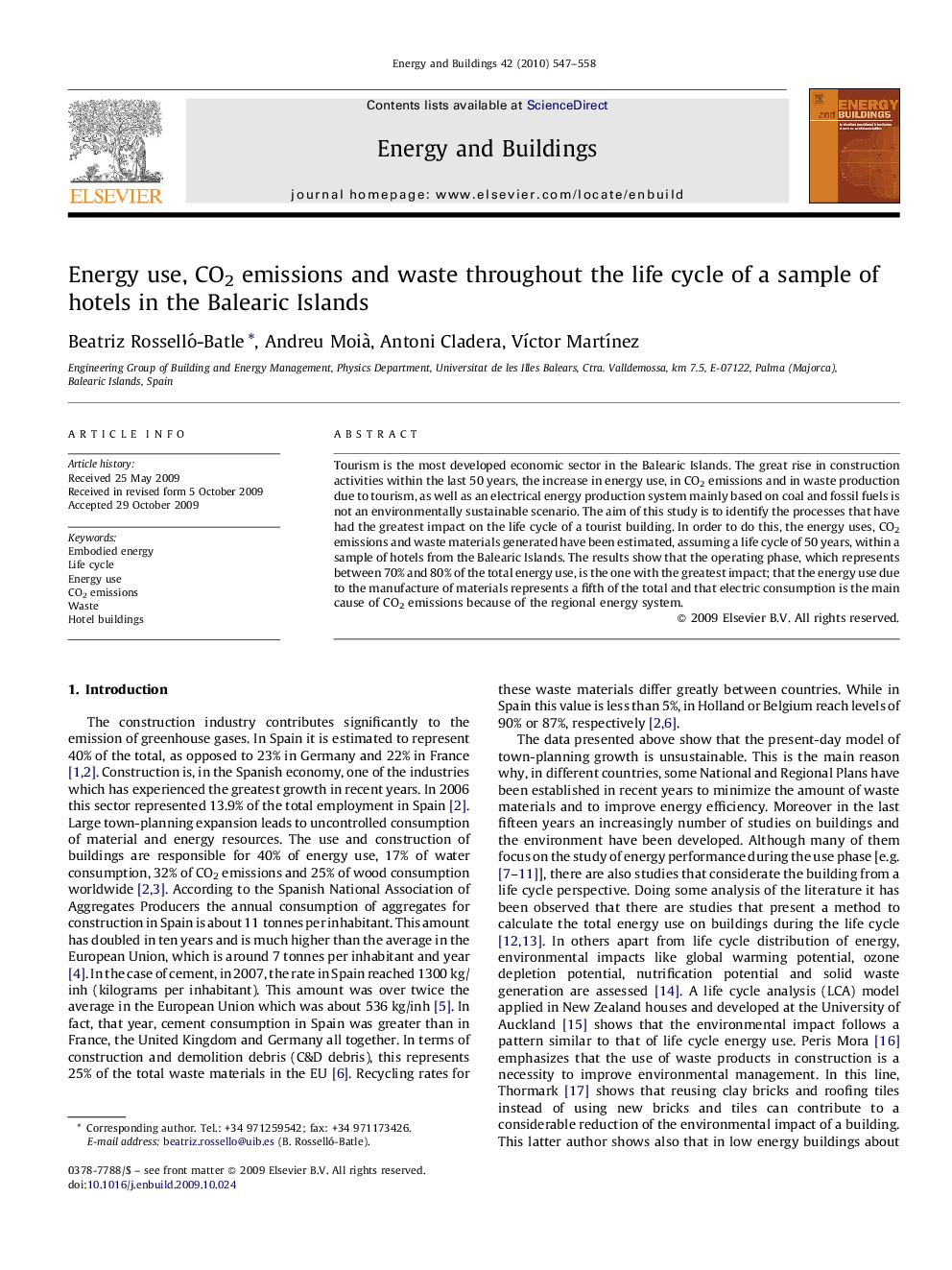| Article ID | Journal | Published Year | Pages | File Type |
|---|---|---|---|---|
| 264834 | Energy and Buildings | 2010 | 12 Pages |
Tourism is the most developed economic sector in the Balearic Islands. The great rise in construction activities within the last 50 years, the increase in energy use, in CO2 emissions and in waste production due to tourism, as well as an electrical energy production system mainly based on coal and fossil fuels is not an environmentally sustainable scenario. The aim of this study is to identify the processes that have had the greatest impact on the life cycle of a tourist building. In order to do this, the energy uses, CO2 emissions and waste materials generated have been estimated, assuming a life cycle of 50 years, within a sample of hotels from the Balearic Islands. The results show that the operating phase, which represents between 70% and 80% of the total energy use, is the one with the greatest impact; that the energy use due to the manufacture of materials represents a fifth of the total and that electric consumption is the main cause of CO2 emissions because of the regional energy system.
